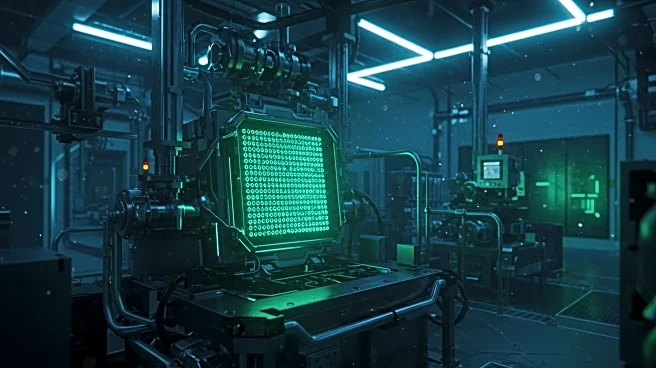What's Happening?
Group14, a battery materials startup, has successfully closed a $463 million funding round led by SK, with participation from ATL, Lightrock, Microsoft, Porsche, and OMERS. This investment is aimed at expanding Group14's manufacturing capabilities for silicon anode materials, which significantly increase the storage capacity of lithium-ion batteries. The startup currently operates three factories, two in the U.S. and one in South Korea. The global market for lithium-ion batteries is projected to grow significantly, and Group14's technology addresses challenges in using silicon over graphite, offering improved energy density and reduced charging times.
Why It's Important?
The investment in Group14 is significant for the electric vehicle industry, as it promises advancements in battery technology that could lead to longer-lasting and faster-charging batteries. This development is crucial for the growth of the EV market, which relies heavily on efficient energy storage solutions. Companies like Microsoft and Porsche participating in the funding round highlight the strategic importance of battery innovation in their future product offerings. The enhanced manufacturing capabilities could position Group14 as a key player in the global battery supply chain, potentially influencing market dynamics and competition.
What's Next?
With the new funding, Group14 is expected to scale up its production facilities and enhance its technological capabilities. This expansion could lead to increased availability of advanced silicon anode materials, potentially accelerating the adoption of electric vehicles. Stakeholders in the automotive and tech industries may closely monitor Group14's progress, as successful implementation could drive further investments and partnerships. Regulatory bodies might also take interest in the environmental implications of improved battery technologies.
Beyond the Headlines
The shift from graphite to silicon anodes in lithium-ion batteries represents a significant technological advancement with potential environmental benefits. Silicon anodes offer higher energy density, which could reduce the number of batteries needed, thereby decreasing resource consumption and waste. This innovation might also spur further research into sustainable battery materials, aligning with global efforts to reduce carbon footprints and enhance energy efficiency.










